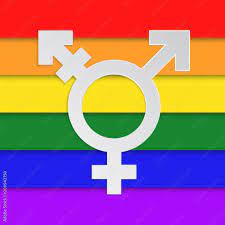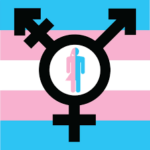The term "trans female" refers to individuals who were assigned male at birth but identify and live as women. This designation encompasses a diverse range of experiences, identities, and paths of self-discovery. As society becomes increasingly aware of gender diversity, understanding the complexities and journeys of trans females has never been more important. In this article, we’ll explore the various aspects of being a trans female, from the challenges faced to the triumphs celebrated.
Understanding What It Means to Be a Trans Female
Being a trans female is about self-identification, where an individual recognizes and embraces their gender identity as female, despite being assigned male at birth. This experience can be deeply personal and varies greatly among individuals. For some, it may involve a lifelong realization, while for others, it can be a more recent understanding. The essence of being a trans female lies in the alignment of one’s external presentation with their internal sense of self.Penile Inversion Surgery Before And AfterMale Breast Enlargement Injections
It’s crucial to acknowledge that gender identity is distinct from sexual orientation. A trans female can be attracted to men, women, both, or neither. This differentiation helps dispel common misconceptions about gender identity and sexual orientation, inviting a more nuanced understanding of what it means to be a trans female in contemporary society.
The Journey: Transitioning and Its Many Phases
Transitioning can encompass a variety of experiences, including social, legal, and medical changes. Social transitioning may involve changing one’s name, pronouns, and clothing to reflect their gender identity. For some, this phase can be empowering and affirming, allowing them to express their true selves in daily life. Legal transition often includes updating identification documents, which can be a significant step in affirming their gender identity legally.
Medical transitioning is another aspect that may involve hormone replacement therapy (HRT) and, for some, surgical procedures. These medical interventions can help align physical appearance with gender identity. However, it’s essential to recognize that not all trans females choose to undergo medical procedures, and the decision is highly personal, reflecting individual desires, health considerations, and financial resources.
Common Misconceptions About Trans Females Explained
One common misconception is that transitioning is a linear process, which can lead to misunderstandings and stereotypes about trans females. The reality is that each person’s journey is unique, and some may experience their transition in non-traditional ways. This includes varied timelines and choices regarding medical and social aspects of their identity.
Another widespread myth is that trans females are simply men dressing as women. This belief undermines the complexity of gender identity and ignores the profound personal experiences that shape a trans female’s life. Recognizing trans females as legitimate women—regardless of their transition status—is crucial for fostering understanding and respect in society.
The Importance of Acceptance and Support for Trans Women
Acceptance plays a pivotal role in the lives of trans females. Support from family, friends, and communities can significantly impact mental health and overall well-being. Trans females who feel accepted and supported are more likely to experience positive outcomes, such as higher self-esteem and lower rates of depression and anxiety.
Creating inclusive spaces where trans females can express themselves without fear of discrimination is vital. This acceptance not only benefits trans individuals but enriches society as a whole by promoting diversity and understanding. Allies can help by advocating for inclusive policies and standing against transphobia, fostering an environment where everyone can thrive.
Healthcare Needs: Navigating the Medical System
Trans females often face unique healthcare needs, which can create barriers to accessing necessary services. Navigating the medical system can be daunting, especially as many healthcare providers may lack adequate training on transgender health issues. This gap in knowledge can lead to uncomfortable or even harmful experiences for trans females seeking care.
To improve healthcare access, it’s essential to advocate for training programs that educate providers on transgender health. Additionally, trans females should seek out healthcare practitioners who are known for their understanding and sensitivity towards gender-diverse patients, ensuring that their specific needs are met with respect and competence.
Celebrating Trans Females: Icons and Achievements
Trans females have made significant contributions across various fields, from politics and activism to arts and sciences. Figures like Marsha P. Johnson and Sylvia Rivera have been instrumental in the LGBTQ+ rights movement, while contemporary icons like Laverne Cox and Janet Mock continue to raise awareness and representation in media and beyond.
Celebrating these achievements not only honors the struggles of trans females but also serves as an inspiration to future generations. Increasing visibility of trans females in various professions helps to challenge stereotypes and promote acceptance, reminding society of the richness of diversity.
Challenges Faced by Trans Females in Society Today
Despite progress, trans females continue to face significant challenges in society, including discrimination, violence, and systemic inequalities. Many experience higher rates of unemployment, homelessness, and mental health issues, often exacerbated by societal stigma. These challenges can create barriers to living authentically and safely.
Additionally, legislative efforts targeting trans rights have become increasingly prevalent, impacting access to healthcare, education, and public accommodations. The ongoing fight for equality and recognition remains crucial, as trans females advocate for their rights and the rights of future generations.
How to Be an Ally: Supporting Trans Females in Your Life
Being an ally to trans females involves active support and a commitment to understanding their experiences. It starts with listening to their stories and validating their identities. Using correct pronouns and names is a basic yet respectful practice that can make a significant difference in a trans female’s life.
Moreover, advocating for trans rights and inclusive policies within your community can ripple out to create broader change. Allies should challenge transphobic remarks and behaviors, educate themselves and others about gender diversity, and support organizations that work for trans rights. By standing alongside trans females, allies can help foster a more inclusive and accepting world.
Understanding and supporting trans females is crucial in promoting equality and acceptance in society. By recognizing their unique experiences, celebrating their achievements, and committing to being allies, we can help create a more inclusive environment. As we continue to learn and grow together, we can foster a world where everyone, regardless of their gender identity, can live authentically and freely.


